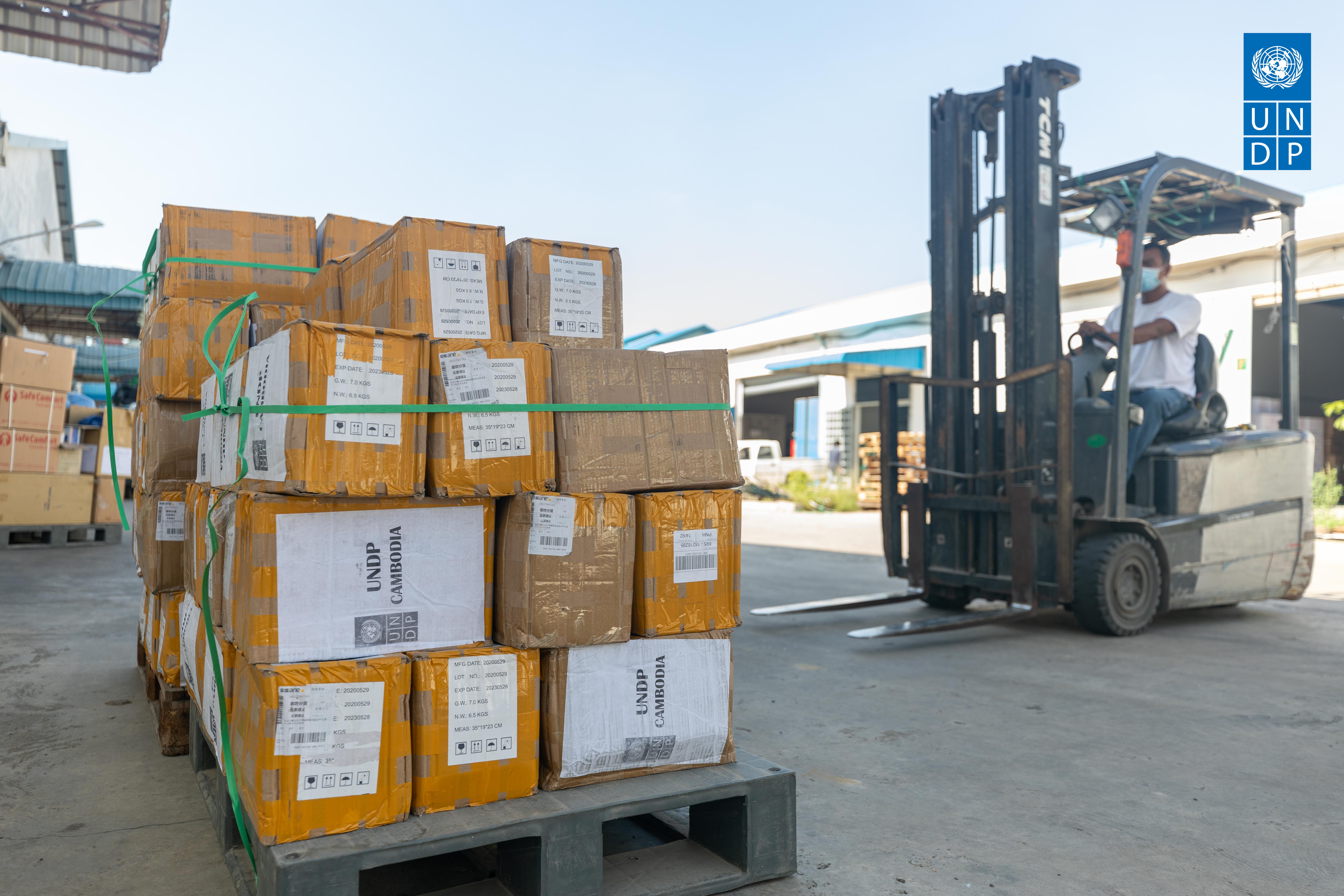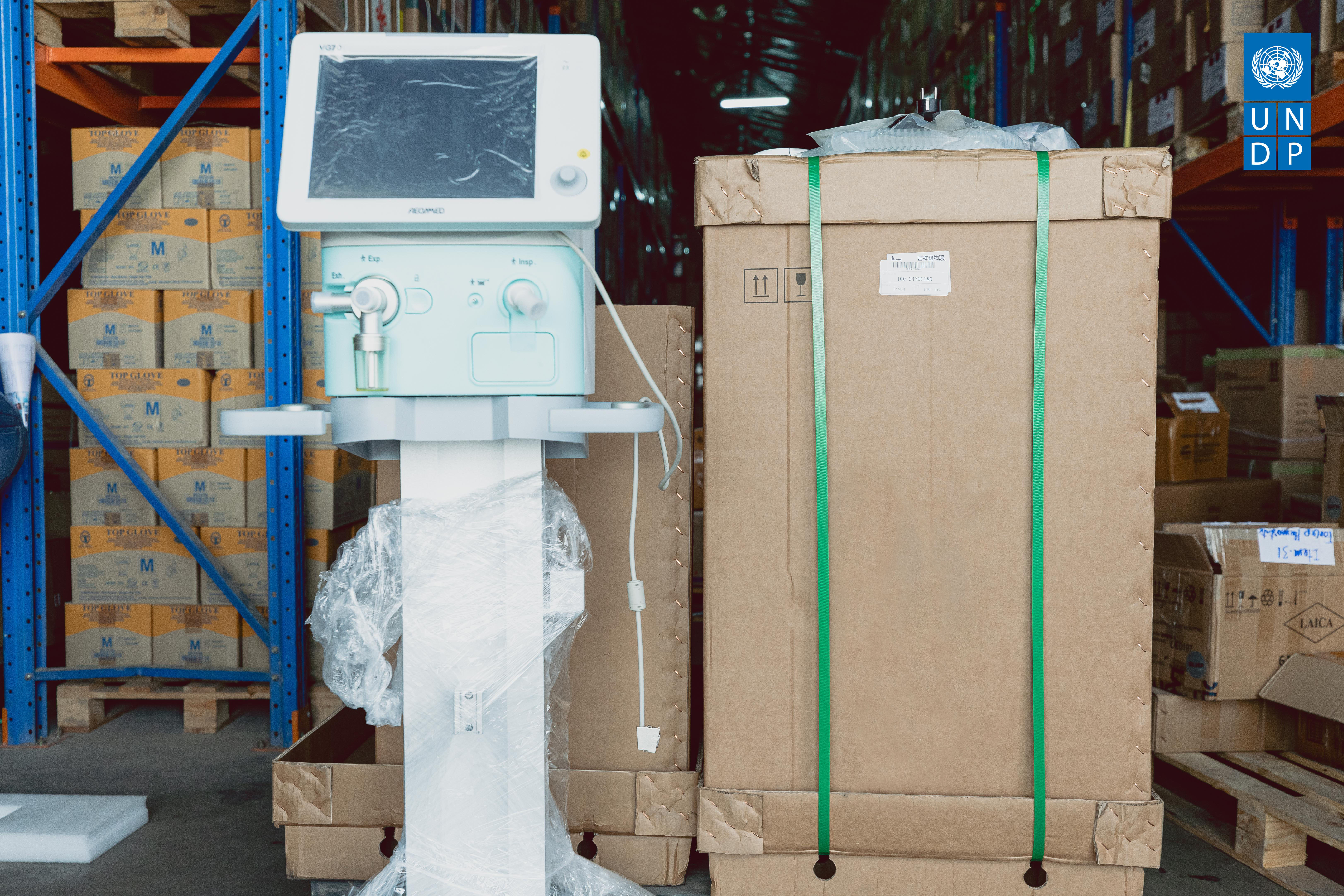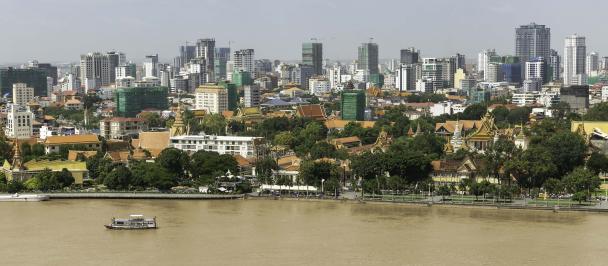Organizations that didn’t grasp early on that the arrival of COVID-19 meant they needed to change the way they worked have struggled during the pandemic. For UNDP Cambodia this lesson came early on. It was a lesson well learned, but not without some pain.
As lockdowns came into effect across the globe, including in Cambodia, a chance series of WhatsApp messages between managers within UNDP and counterparts at the World Health Organization (WHO) and World Bank exposed an unusual problem: the Government had the money and knew what medical equipment they needed for the response – but faced empty supply lines.
With a UNDP procurement and logistics hub next door in Bangkok, one additional hub in Beijing, and headquarters in Copenhagen, we thought we might be able to help.
The conventional UNDP office has procurement located firmly in the back office. We needed to turn that existing structure upside down. We needed the head of the office to work for the procurement team – to become the key messengers between the Ministry of Health, WHO and World Bank. The brains behind this work sit in UNDP’s procurement office, and they quickly became the most important people in getting lifesaving medical supplies to Cambodia.
The UNDP procurement team swiftly jumped into action as our correspondents. They coordinated with the Ministry of Health and WHO to secure a list of Cambodia’s most urgently needed medical equipment and supplies, and liaised with the World Bank’s COVID-19 assistance team to support the funding of what would amount to a $5.35 million USD initiative.
This list included ventilators that were in extreme demand globally, along with testing cartridges, biohazardous waste bags, and safety boxes with needles and syringes. Turning their attention to messages with our UNDP offices in Bangkok, Beijing and Copenhagen, the procurement team coordinated the establishment of new supply lines to make the list a reality.
Since June, we have witnessed the fruition of the team’s work – and of flipping our office structure on its head. Fifty ventilators and 5000 testing cartridges have arrived in Cambodia to date through the coordinated initiative, and 60 additional ventilators are scheduled to arrive in the coming months.
These items have strengthened the resiliency of 28 medical facilities across Cambodia that were set up to handle COVID-19 cases. This has been especially important for the 25 hospitals located outside of Phnom Penh city. These facilities previously lacked the equipment needed to test and treat COVID-19 patients.
Without the agility to recognize when our organization needed to think and act differently, we could have faced a very different outcome. Our continued ability to take growing pains in stride is needed in our work, especially as we support the Government in responding to the challenges presented by COVID-19 today, and in preparing for the years beyond recovery.

 Locations
Locations


